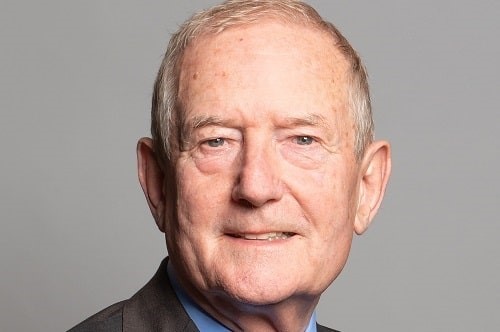It’s my belief that it is the inalienable right for every person, in the UK and around the world, to breathe clean, unpolluted, and safe air. However, actions being taken by the UK government and across industry are falling far short of overcoming this global challenge.
Opinion
Joined-up action needed to tackle air pollution
That is why, two years ago, I set about building a network of like-minded activists, organisations and businesses both to raise the profile of poor air quality in our urban areas and, through the input of experts and evidence, determine the solutions.
It has been a remarkable two-year journey for the Westminster Commission on Road Air Quality (WCRAQ) and through a real drive to seek out the answers to these challenges we have established six working parties, specialising in health, air quality monitoring, research, education, energy fuels and vehicles, and planning.
 Barry Sheerman MP. Photograph: UK Parliament
Barry Sheerman MP. Photograph: UK Parliament
As a parliamentarian, I chaired the House of Commons Children, Schools and Families Select Committee for 10 years; I learned through experience there that one of the most effective ways to understand a problem and institute the solutions is to be led by the evidence.
Therefore, the Commission was designed to foster collaboration, communication and action among those who are experts and activists in the field in terms of mitigating toxic air pollution. The chairs of our working parties are distinguished by their expertise and passion to push for change in this crucial area.
Air pollution is one of the most existential and severe challenges to public health worldwide, especially on our roads and through our vehicles – but commensurate action has not been taken to counter it and the devastating health impacts that it can have.
Air pollution is cutting short the lives of billions of people by up to six years and although efforts are being made to lower emissions levels, dirty air is still a far greater killer than smoking, car crashes and other leading causes of premature deaths worldwide.
Professor Michael Greenstone of the University of Chicago, who developed the Air Quality Life Index, declared that “air pollution is the greatest external threat to human life on the planet”. The experts are clear: this challenge is existential and if it is not remedied through a joined-up, concerted effort across government, business, industry and public health leaders, the consequences will be dire.
The Commission has gone from strength-to-strength. We are now forming our seventh working party, one which will bring together Members of Parliament across the House of Commons and House of Lords.
We have already galvanised cross-party appeal within this ‘Policy’ working party and we will continue to reach out across political divides to ensure that more is done to reflect the scale of the crisis that we face. On Clean Air Day back in June, we convened policymakers, activists and industry leaders in a ‘call to action’ which was a resounding success and has renewed our passion to usher in necessary changes to overcome this challenge.
From the utilisation of hydrogen as a clean fuel source, to the work of local authorities to implement change locally; from the development of green infrastructure to the role of sustainability in our education system and curriculum, our aims are ambitious and far-reaching. To address this crisis, boldness and expertise are critical.
If we are to protect the health and wellbeing of our children and grandchildren and prevent the tragedy of premature deaths, far more must be done. Legislation, our political will and the efforts of the private and third sectors must be focused on addressing this issue from every angle. The right to breathe clean air should be inalienable. We have a long way to go to make this a reality.
Barry Sheerman is Labour and Co-operative MP of Huddersfield
For more information about the work of Barry Sheerman MP and the WCRAQ see:
OPINION

Is workplace health safe in 2026?
By Kevin Bampton, BOHS on 10 February 2026
UK Government efforts to boost the economy and employment levels through approaches such as deregulation pose a serious threat to the country’s workplace safety standards and the health of our workforce.

How stress and burnout will shape the workplace in 2026
By Charlotte Maxwell-Davies, Mental Health UK on 09 February 2026
Burnout is rapidly becoming one of the nation’s most significant workplace challenges. It is emerging as a defining issue for organisations and wider society, as the UK contends with a long-term sickness crisis driven by poor mental health. Stress can be motivating in short bursts, but when left unmanaged it contributes to work absences and lost productivity, as well as presenting a clear risk to the health of workers.

A new year, a new approach to risk?
By Mike Robinson FCA, British Safety Council on 02 February 2026
The rulebook is becoming obsolete faster than we can rewrite it. While bureaucracies labour to update yesterday’s regulations, the world of work transforms daily.



